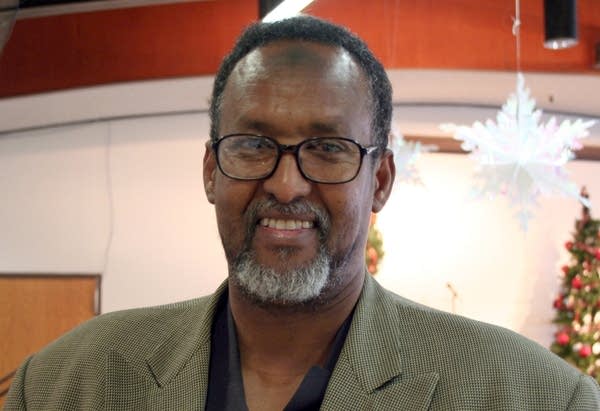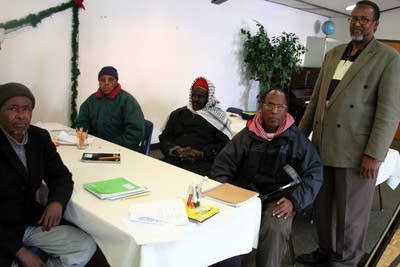Cultures clash among classmates at SE Minn. schools

Abdalla Mursal moved his family from Atlanta to southeastern Minnesota a decade ago to raise his four children in an area with good schools and low crime.
"This city is a very peaceful city and everybody who lives here likes it," Mursal said of Rochester. "I like this city."
But in recent months, Mursal and other Somali parents have discovered that their children's schools aren't so tranquil, as Somali youngsters have been in fights with white and African American students.
On Oct. 14, another student teased Mursal's son, Abdirahman, a high school junior, and hit him with a baseball bat at school.
Create a More Connected Minnesota
MPR News is your trusted resource for the news you need. With your support, MPR News brings accessible, courageous journalism and authentic conversation to everyone - free of paywalls and barriers. Your gift makes a difference.
"Somebody hit him with a baseball bat in the back, but immediately the police handled the case. So, I let the police and the school handle the case for the matter," Mursal said. "Fortunately, there was no injury and he was okay."
School officials would not say if they suspended the student who hit Abdirhman, but police investigated the incident and charged the student with second- and fifth-degree assault, and disorderly conduct.
The assault is one of a handful of recent incidents in southeastern Minnesota schools. In late November, about a dozen students started fighting in the cafeteria of another high school in Rochester.

The fight was between a group of Somali and African American students. No one was hurt, but the incident received a lot of public attention since it involved so many young people. Police have sent this case to county prosecutors and submitted disorderly conduct and riot charges for eight of the students.
Again, district officials would not say if they suspended the students, but after the brawl, school officials held a closed-door meeting with Somali and African American community leaders to talk about the fights. Somali parents like Mursal say the incidents are more about cultural misunderstandings than race. But they say it's hard to pinpoint exactly what triggers these fights.
Police also can't point to a particular cause for tensions between other students and Somalis.
"They don't seem to like each other," said Capt. Brian Winters of the Rochester Police Department.
But whenever teenagers fight, Winters said, it should be taken seriously.
"Any time you have behavior that is perceived by others to be motivated by bias, it is not a 'kids being kids' situation, or it shouldn't be tolerated as 'kids being kids' situation," Winters said. "These things should be looked at as serious events."
Several fights also broke out in November at Owatonna High School between white and Somali students.
Owatonna Police Chief Shawn LaDue said the problem there began when two white students wrote papers for class he described as inflammatory and disrespectful to the Somali culture. He said the papers started circulating around the school and on the Internet.
"You've got Facebook, your social networks, you've got texting and all these other things people have got. And it's just been really difficult to keep up with," LaDue said. "It's something that we're not familiar with and up to this point, we've gotten along really well in this community with the diversity that does exist in our community."
In all, eight students face charges, ranging from fifth-degree assault to disorderly conduct.
LaDue said the recent fights are the worst he's seen in the last five years in terms of the number of kids involved. The problem extends out of the schools and into the city, where more kids are also getting into fights.
"This is not just a school problem," he said. "It's not a city problem. It's not a police department problem. It's a community problem."
African refugee populations are not new to Owatonna or Rochester. In both cities, youth groups promote cultural understanding, minority groups have developed a stronger voice, and city leaders make a conscious effort to create on-going diversity education programs.
"There are a lot of African American students and Somali students who do get along," said Suzanne Griffin-Ziebart, who directs the school improvement and accountability program for Rochester schools. She said the recent incidents do not necessarily represent a trend.
"There are always unique instances where we have students groups who may have disagreements over one issue or another," Griffin-Ziebart said. "But I'm not sure we can jump to a conclusion based on one incident at a school system that there's an ongoing difficulties between student groups. I'm just not sure we can go there."
Mursal agrees for the most part. The incidents remind him he needs to help move the discussion about diversity forward. Talking about these differences, he said, is the best way to stem the conflicts.
